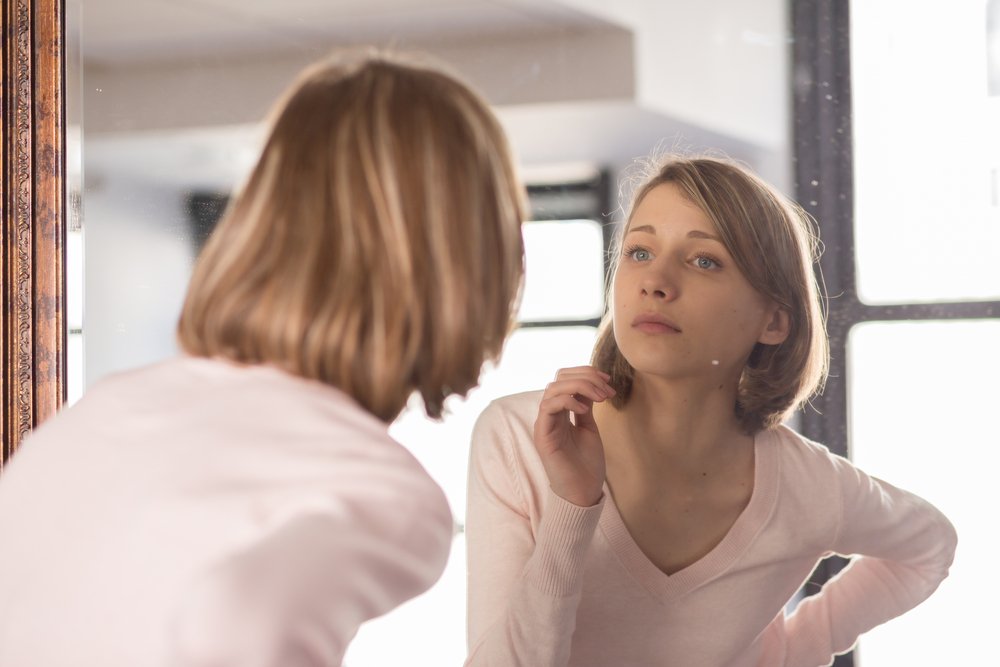Body Image and Chronic Illness is an Inside-Out Issue
Written by |

Many people in the chronic illness community will talk about how their illness affects their mental health. They talk about grief, depression, health, anxiety, chronic pain, and post-traumatic stress disorder. What is not talked about as openly is the effect of chronic illness on our body image. I understand how difficult it can be to have a positive body image, especially in combination with a chronic illness like pulmonary hypertension. It can be hard to feel good about yourself when you feel as if your body is failing you. When it is hard some days even to walk up the stairs, or when you look tired and worn-out.
It’s easy not to love your body on these days. I blamed a lot of my conditions and symptoms on my body, even at a young age. I would think to myself “Why can’t I keep up like everyone else? Why does this seem so difficult for me?” Truthfully, it’s a lot easier to think “It’s because my body is terrible!” than the reality of “It’s because I have a chronic illness and I’m not the same as everyone else.” Trying so hard to be “normal” and fit in not only puts a strain on me mentally, but it also is physically draining.
I have put so much pressure on myself when I was younger, and now, to be healthy. There is pressure to be fit, maintain my weight (which usually is praised when it is on the lower side when you have a heart condition), eat the right foods, limit my salt intake and “fatty foods,” stay away from caffeine and lots of sugar, and exercise regularly. Through the years of managing a chronic illness, all of these “healthy habits” were mentioned to me by doctors. When you think about it, doing the right things for your body is really the only control we have.
On days when I don’t feel in control because of my illness, whether it is increased dizziness, a dangerously low blood pressure that keeps me in bed most of the day, nausea from medications, low oxygen saturations, an upper respiratory infection that I frequently get, or just a day when I look terrible with dark circles under my eyes, pale face, and bluish lips, I still feel the urge to control what I know I can. Luckily, thanks to my great support system of family, friends, my therapist, and my nutritionist, I am still in recovery from an eating disorder. I am able to make a rational decision regarding my food intake on bad days with my illness, and be realistic about the positive control that I have.
Love your body
If you are suffering with poor body image on bad days, or every single day with your chronic illness, just know that you are not alone in your feelings. My advice to myself and to you would be: Realize it isn’t your external body that is making you feel this way. It is on the inside of you, and it is something over which we have absolutely no control.
Don’t try to control yourself through depriving your body of food, nutrients and overdoing exercise. None of these things will cure you of your condition. You may feel as if you are more in control when you take out your bad days on your body, but the reality is you aren’t helping anything. These thoughts will consume you and will end up, ironically, controlling you.
Practice each day to love your body, even on the bad days. I’m not saying you have to shout “I love myself!” from the rooftops. I’m just saying that loving yourself requires that you take care of yourself, even though you have an illness you can’t control. Self-love isn’t just about eating the right food and exercising. It’s about taking time to do something that makes you happy, even on your hardest days. That might be reading in bed, writing, singing, watching a movie, having friends come over to hang out, taking a bath, or putting on some makeup if it makes you feel better. Or maybe just strut around your house looking fabulous.
Be kind to yourself, and know that it’s okay to struggle with loving your body — but you should still treat it well.
***
Note: Pulmonary Hypertension News is strictly a news and information website about the disease. It does not provide medical advice, diagnosis, or treatment. This content is not intended to be a substitute for professional medical advice, diagnosis, or treatment. Always seek the advice of your physician or other qualified health provider with any questions you may have regarding a medical condition. Never disregard professional medical advice or delay in seeking it because of something you have read on this website. The opinions expressed in this column are not those of Pulmonary Hypertension News or its parent company, Bionews Services, and are intended to spark discussion about issues pertaining to pulmonary hypertension.




Maureen
Very good! Thank you!
Joanne Sperando
Great article Brittany!